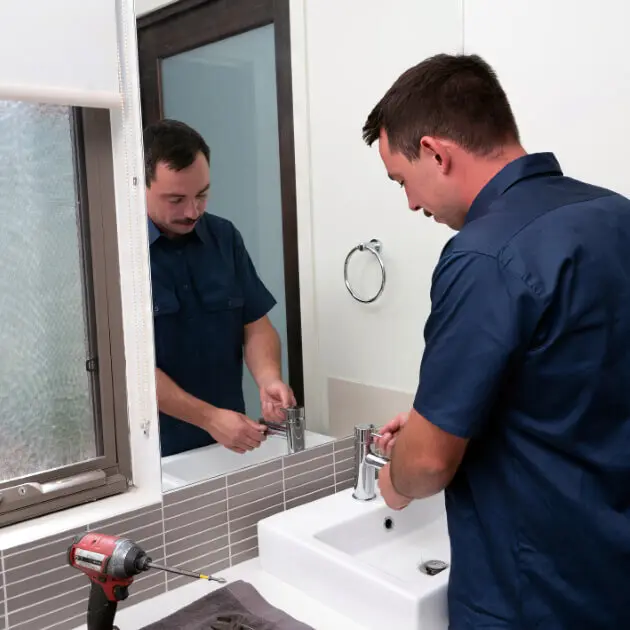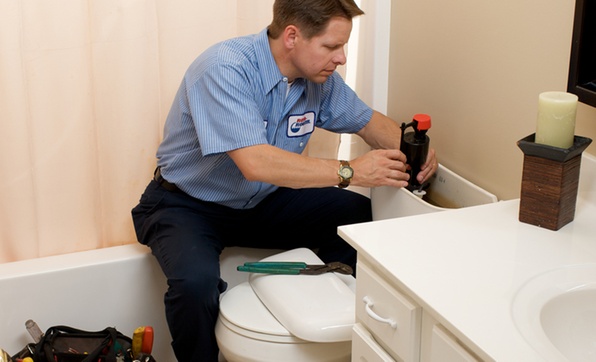Ways to Maintain Your Bathroom Plumbing: Guidelines for New Homeowners
Ways to Maintain Your Bathroom Plumbing: Guidelines for New Homeowners
Blog Article
What are your insights and beliefs about 6 Essential Plumbing Checks for New Homeowners?

For brand-new homeowners, understanding and preserving shower room pipes can conserve both money and time by avoiding expensive problems down the line. Below are some crucial bathroom plumbing tips to help you maintain whatever running efficiently.
Acquaint Yourself with the Key Shut-Off Shutoff
Recognizing where the major water shut-off valve is located in your home is essential. This allows you to rapidly shut off the water system in case of significant leakages or throughout pipes emergency situations, protecting against considerable water damage.
On A Regular Basis Evaluate for Leakages
Tiny leakages can cause huge issues. Routinely check under sinks, around toilets, and near plumbing components for any kind of indicators of leaks. Look for dampness, small drips, or rust. Catching and fixing leaks early can prevent extra serious damages and conserve water.
Don't Ignore Slow Drains Pipes
If your sink or tub is draining slowly, it's often an indicator of an obstruction developing. Addressing this very early can stop a total obstruction. Use a bettor or a plumbing professional's serpent to clean out debris. Avoid using chemical drainpipe cleansers as they can damage your pipes with time.
Know What Not to Flush
Commodes are not garbage disposals. Prevent flushing anything apart from toilet tissue and human waste. Items like wipes, womanly hygiene items, and cotton bud must be gotten rid of in the garbage to avoid clogs and sewage system backups.
Mount Strainers in Drains
Area strainers in your sink and bath tub drains to capture hair and other particles before they enter your pipes system. Cleaning up the filters frequently will help stop buildup and keep water flowing openly.
Preserve Your Water Heater
Ensure your hot water heater is set to an ideal temperature level (normally about 120 degrees Fahrenheit) to prevent hot and reduce power use. Flush the tank each year to remove debris accumulation, which can lower the efficiency and life expectancy of your heater.
Upgrade Your Components
If your home has older fixtures, take into consideration updating to much more effective versions. Modern toilets, showerheads, and faucets are made to utilize much less water while providing great stress, which can significantly decrease your water expense and environmental impact.
Beware with Do It Yourself Plumbing Fixes
While it's alluring to handle all home fixings on your own, be cautious with pipes. Some issues may call for professional expertise, specifically if they involve main water lines or drain repair services. Working with a specialist can sometimes be a lot more cost-effective than DIY, particularly if it protects against more damage.
Get Ready For Winter
Secure your pipes from cold throughout winter by shielding pipes in unheated locations like basements, attics, and garages. During severe cool, let cold water drip from taps served by subjected pipelines to aid prevent freezing.
Arrange Routine Upkeep
Think about organizing yearly inspections with a licensed plumbing. They can find issues that you might miss out on, such as hidden leaks or deterioration on pipes and components. Normal upkeep helps extend the life of your pipes system and can prevent emergencies.
Conclusion
Understanding and preserving your home's washroom plumbing can prevent several typical concerns. By complying with these essential ideas, you can ensure your bathroom continues to be practical and efficient, conserving you money and time over time.
Essential Plumbing Tips for Homeowners: Keep Your Pipes Flowing Smoothly
As a homeowner, understanding the basics of your plumbing system can save you time, money, and a lot of headaches. Plumbing issues can range from minor annoyances like dripping faucets to major problems like burst pipes that cause significant damage. This guide provides essential tips to help you maintain your plumbing system and tackle common issues.
Understanding Your Plumbing System
Supply System: Brings fresh water into your home from a municipal source or a well. Drain-Waste-Vent System: Removes wastewater and vents sewer gases outside. Fixtures and Appliances: Includes sinks, toilets, showers, dishwashers, and washing machines. Basic Maintenance Tips
Regular Inspections: Periodically check for leaks, corrosion, and other signs of wear and tear. Look under sinks, around toilets, and near water heaters. Know Your Main Shut-Off Valve: In case of a major leak, you’ll need to shut off the water quickly. Ensure everyone in your household knows where the main shut-off valve is located. Prevent Frozen Pipes: In cold climates, insulate exposed pipes and let faucets drip during extreme cold to prevent freezing. Use Strainers: Install strainers in sinks and tubs to catch hair, food particles, and other debris that can cause clogs. Common Plumbing Issues and Solutions
Clogged Drains:
Prevention: Avoid pouring grease down the drain and use drain screens to catch debris. DIY Fix: Use a plunger or a plumbing snake to clear minor clogs. For stubborn clogs, a mixture of baking soda and vinegar can sometimes help. Leaky Faucets:
Prevention: Replace washers and seals regularly. DIY Fix: Turn off the water supply, disassemble the faucet, and replace worn parts.

Start Now Report this page